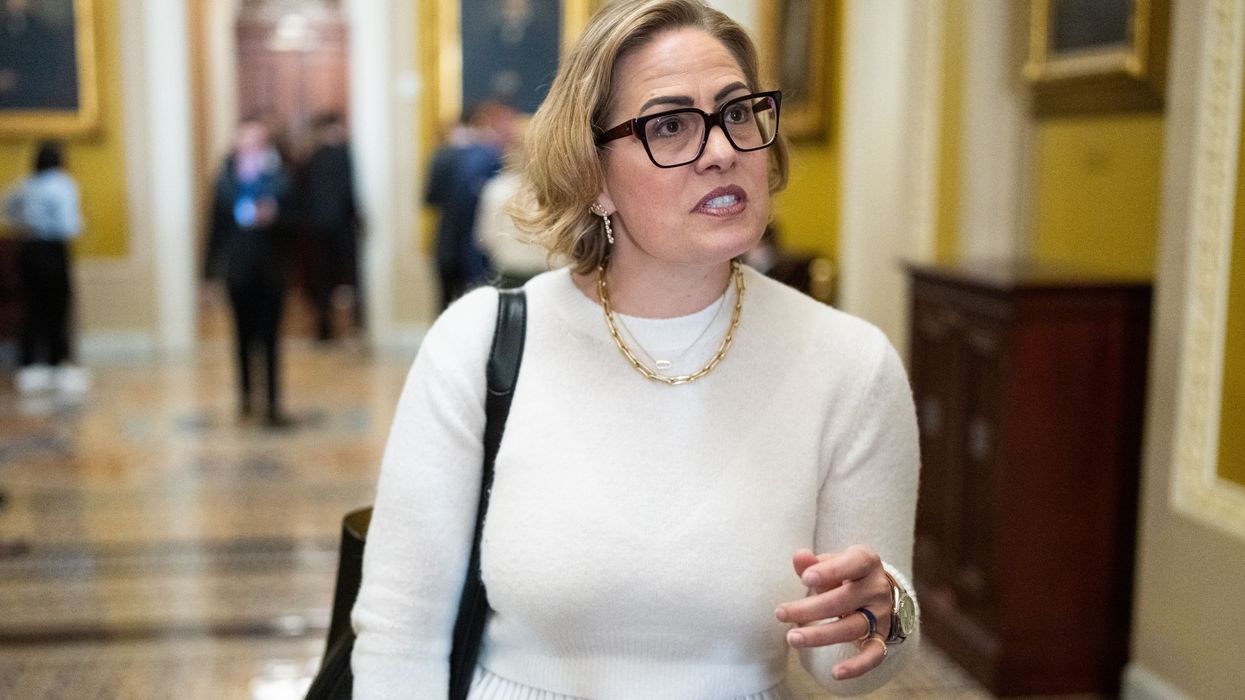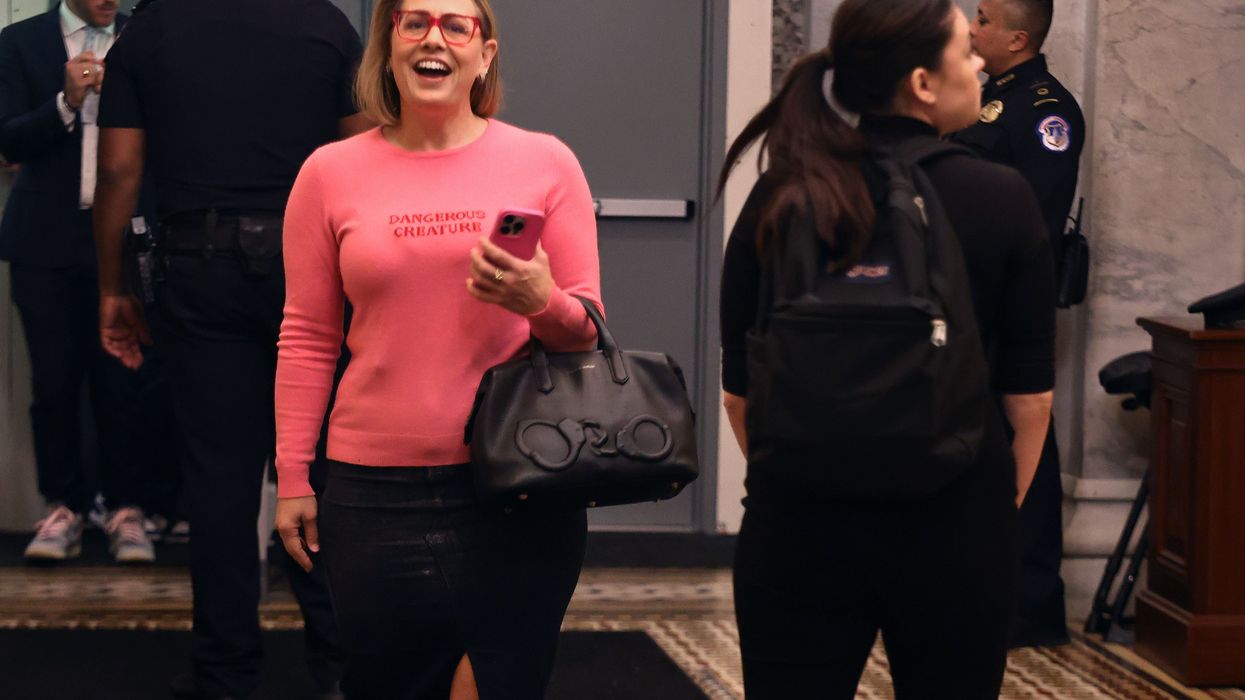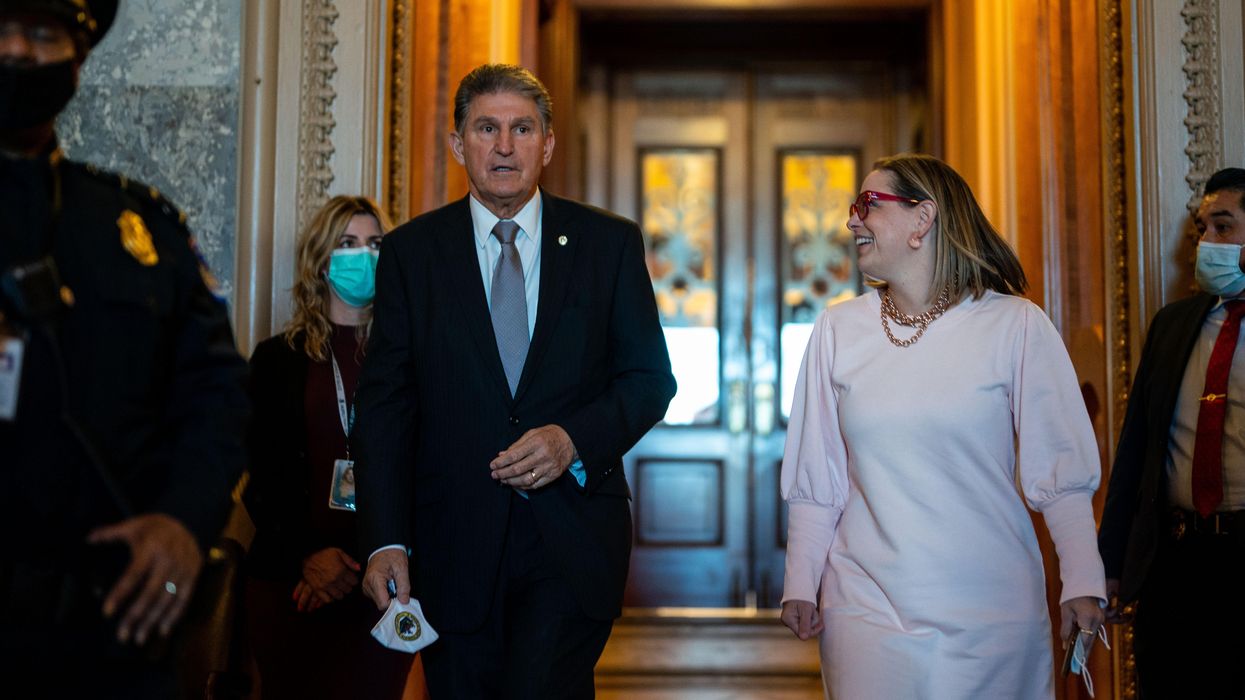'Good!' Declares AOC After Arizona City Council Rejects Data Center Pushed by Sinema
"She can't even be effective as a shill," said one critic of the ex-senator's lobbying.
Congresswoman Alexandria Ocasio-Cortez was among those celebrating after the Chandler, Arizona City Council on Thursday night unanimously rejected an artificial intelligence data center project promoted by former US Sen. Kyrsten Sinema.
"Good!" Ocasio-Cortez (D-NY) simply said on social media Friday.
The defeat of the proposed $2.5 billion project comes as hundreds of advocacy groups and progressive leaders, including US Sen. Bernie Sanders (I-Vt.), are urging opponents of energy-sucking AI data centers across the United States to keep pressuring local, state, and federal leaders over climate, economic, environmental, and water concerns.
In Chandler, "the nearly 43,000-square-foot data center on the corner of Price and Dobson roads would have been the 11th data center in the Price Road Corridor, an area known for employers like Intel and Wells Fargo," the Arizona Republic reported.
The newspaper noted that around 300 people attended Thursday's meeting—many holding signs protesting the project—and city spokesperson Matthew Burdick said that the government received 256 comments opposing the data center.
Although Sinema skipped the debate on Thursday, the ex-senator—who frequently thwarted Democratic priorities on Capitol Hill and ultimately ditched the party before leaving office—previously attended a planning and zoning commission meeting in Chandler to push for the project. That stunt earned her the title of "cartoon villain."
Sinema critics again took aim at her after the 7-0 vote, saying that "she can't even be effective as a shill" and "Sinema went all in to lobby for a data center in Chandler, Arizona and the council told her to get rekt."
Progressive commentator Krystal Ball declared: "Kyrsten Sinema data center L. Love to see it."
Politico noted Friday that "several other Arizona cities, including Phoenix and Tucson, have written zoning rules for data centers or placed new requirements on the facilities. Local officials in cities in Oregon, Missouri, Virginia, Arizona, and Indiana have also rejected planned data centers."
Janos Marton, chief advocacy officer at Dream.Org, said: "Another big win in Arizona, following Tucson's rejection of a data center. When communities are organized they can fight back and win. Don't accept data centers that hide their impacts behind NDAs, drive up energy prices, and bring pollution to local neighborhoods."
When Sinema lobbied for the Chandler data center in October, she cited President Donald Trump's push for such projects.
"The AI Action Plan, set out by the Trump administration, says very clearly that we must continue to proliferate AI and AI data centers throughout the country," she said at the time. "So federal preemption is coming. Chandler right now has the opportunity to determine how and when these new, innovative AI data centers will be built."
Trump on Thursday signed an executive order (EO) intended to block states from enforcing their own AI regulations.
"I understand the president has issued an EO. I think that is yet to play itself out," Chandler Mayor Kevin Hartke reportedly said after the city vote. "Really, this is a land use question, not [about] policies related to data centers."


